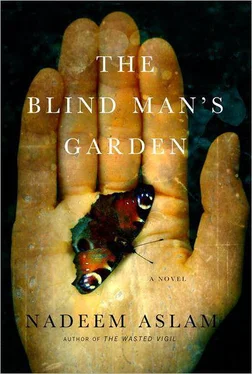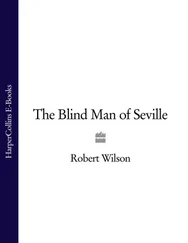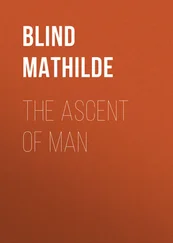There is a table with two chairs on opposite sides, facing each other, one of which Mikal is made to sit in. Another white man — equally bulky and over six foot tall — comes in with a man whose skin is the same colour as Mikal’s own. The brown-skinned man says in Pashto that he is the interpreter, and then — when Mikal does not react — says the same thing in Urdu, Punjabi and Hindko. Mikal does not alter his blank expression and he tells Mikal in all four languages that at no point must he attempt to get out of his chair. That the man in the corner under the poster is Military Police and this other white man is here to ask some questions.
‘My name is David Town,’ says the new white man through the interpreter. ‘From the US government. The doctor said you were well enough to speak to me. What is your name? I want to notify your family that you are here.’
Mikal does not answer.
‘Tell me your name and how to reach your family.’
The white man has very pale skin. Mikal has never seen a real white person at close proximity before today. The paleness is actually astonishing.
What will they do to make him talk? Hold a pistol to his head, pull out his fingernails, like the Pakistani jailers did to his father.
‘We know you can speak. You spoke in your sleep. Sometimes in the language of an Afghan, sometimes in the language of a Pakistani. Are you a Pakistani, an Afghan, or an Afghan born and raised in Pakistan?’
Mikal does not answer, his shackled hands resting on the table. Was he asleep long enough to have spoken ?
The man puts a book of photographs on the table. ‘Tell me if you recognise anyone in here.’ Slowly he begins to turn the pages, Mikal staring down at the men in Arab headdress, Palestinian scarves, clean-shaven with neckties, young and old, beards long and short.
Just then another white man comes in and motions for David to step out.
When David returns a few minutes later he is an altered man. He begins to shout at Mikal even before sitting down.
‘You were found in a mosque from whose basement we recovered drums of white powder. What is that powder?’
Mikal does not answer.
‘Is it anthrax or ricin?’
Recipes for ricin were found in an al-Qaeda safe house back in November, Mikal has heard, and there are videotapes of al-Qaeda’s experiments on dogs with sarin and cyanide gas.
The man goes on shouting questions at him, his face inches from Mikal’s at times.
‘Or is it something else?’ As the man speaks Mikal keeps his eyes on his mouth, listening to the sounds coming out of it, and not looking at the interpreter beside him who turns those sounds into words. It is as though a disembodied voice in the air is making him comprehend what the white man is saying. ‘What is that substance, and where did you people get it? What were you doing at the mosque?’
Every man at the mosque was picked up. The women and children had been left behind. The man takes out a silver digital camera and shows Mikal shots of women on its flatscreen monitor. ‘These were the women at the mosque. Which one is your wife? Your sister or mother?’
All the women carry an identical expression. Afraid of the gun but contemptuous of the hand that wields it.
‘Maybe we should bring them here. Maybe they can tell me what your name is and who brought the powder to the mosque.’
He closes his eyes and the Military Police soldier shouts at him to open them.
‘If the powder does not belong to you, and was left there by someone else, you should tell us. We have done some tests and we think it could be anthrax. You must tell us what you know and tell us fast because the whole area might have been contaminated. The women and children in there must be evacuated. The only way we can get US chemical teams out to neutralise the stuff is if you tell us what you know. Don’t waste time, those women and children need your help. What is your name and what do you know about that powder?’
‘I don’t know anything,’ Mikal says. ‘I am not from the mosque. I am just a prisoner. At first someone else’s, now yours.’ He speaks Pashto, to keep them as far away as possible from his real identity.
‘What’s your name?’
‘I don’t know anything about the powder.’
‘What happened to your hands? How did you get the bullet wounds on your body? Did you fight with the Taliban against the Americans?’
‘The powder could be insecticide. I saw a large kitchen garden behind the mosque.’
‘We are sure it’s not, we have done initial tests. What’s your name? Did people in expensive Toyota SUVs ever visit the mosque?’
‘I am not from the mosque.’
He is very tired and his head nods and the Military Police soldier shouts at him to stay awake and David wants to know whether he had spent time in Sudan, whether he had fought in Kashmir, if he had any links with the man who planned to blow up Los Angeles airport in 1999, if he had been to Bosnia.
‘Say something. At least tell me we infidels will never win against the likes of you because we love life while you love death.’
As punishment for his silence David asks him to get out of the chair. He is made to lower himself onto his knees and hold out his arms at the sides. David and the interpreter leave the room, and he stays in this position for thirty-five minutes, the Military Police soldier shouting at him every time his arms droop or he slumps forward out of fatigue and the need for sleep.
When David returns he wishes to know whether he has met Osama bin Laden, Mullah Omar or Ayman al-Zawahiri. Mikal refuses to speak and they take him to a bare windowless room, attach a chain to his wrists and, asking him to raise his arms above his head, fasten the chain to a ring on the ceiling. The room is filled with brilliant light. A sleep deprivation cell.
Every time he falls asleep the arms shackled to the ceiling wrench him awake.
*
The prison is an abandoned brick factory. In a vast warehouse inside the main building there are two rows of metal cages, filled with boys and young men, some with hoods over their heads, industrial white lights shining down on them at all hours.
After he loses consciousness in the sleep deprivation chamber, he awakens to discover that he has been stripped naked and is being washed with a hosepipe. A Military Policeman dries him and walks him naked to the tent that had smelled of balloons where his wounds are dressed again. They put him in a jumpsuit, put the metal back onto his limbs, and he is brought to one of the cages in the warehouse and he curls up on the floor.
‘Where are you from?’ the boy in the next cage asks.
Mikal doesn’t know whether he has reacted to the question, to the language.
‘My name is Akbar,’ he says to Mikal in Urdu and then Pashto.
As he lies on the floor the boy tells Mikal the nationality of the other people around them, pointing to each cage. Algerian. Sudanese. Russian. Saudi Arabian. His face is serious and beautiful, as is his voice, and he says he was a taxi driver in Jalalabad when he was kidnapped and sold to the Americans for $5,000.
‘What’s your name?’
Mikal closes his eyes, telling himself not to react. He has been placed in the next cage to make Mikal reveal information.
‘Where are you from? The man on my other side is from Morocco. See him, the one with his head bandaged? He is a bit unmanageable. He speaks English but his accent is terrible so he needs an interpreter, and always wants his answers to be translated precisely.’ Mikal hears the chains of the boy as he moves. ‘He hates America and feels it’s necessary to keep telling the interrogators that fact, becoming angry when the interpreter refuses to translate his full answers and says instead “and so on and so forth”. Or “Now he is prattling on about the Koran and the Crusades and the glory of Islam and the Day of Judgement,” or “And now he’s off again on his obsession with death.”’
Читать дальше












